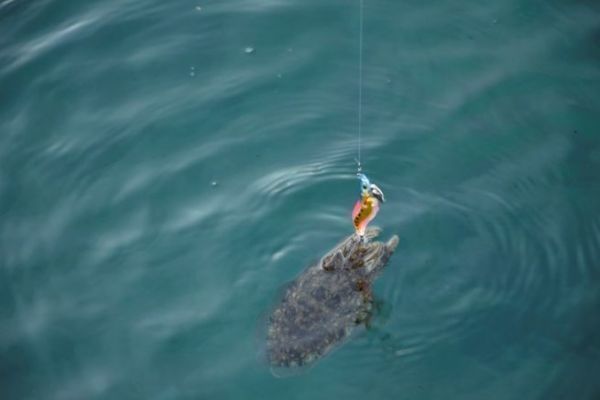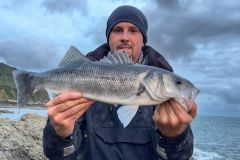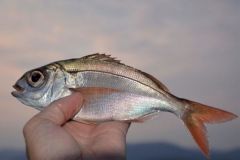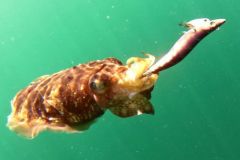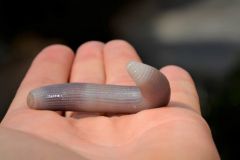Choosing the right moment
The most productive period is from spring (April-May) to autumn, when cuttlefish approach the coast to breed. Night fishing is often more fruitful: cuttlefish hunt close to shore and respond well to phosphorescent or colored lures such as pink and orange.
Selecting the right equipment
A rod from 2.10 to 2.40 m with soft action (20‚euros40 g) and a reel size 3000 are ideal. Opt for a 30/100 fluorocarbon leader and quality jigs to limit tangles. Leaded jigs are ideal for drifting or deep-sea fishing, while floating jigs (Tataki attachment) are suitable for boat fishing.

Jig fishing
Cuttlefish fishing is done with jigs, lures specially designed for cephalopods. You can also use fish-based natural baits. Effectiveness varies according to depth, light and bottom type.
Jigs (or "calamarettes") imitate shrimp and are fitted with a barbless basket to catch cuttlefish without injuring them.
They come in several types:
Floating jigs : used for drop shot mounting, ideal for shallow areas.
Leaded jigs : perfect for fishing at depth or in strong currents, often with linear animation or Bichi Bachi.
The most effective colors are pink, orange and blue, clearly visible even in murky water.
Add natural bait
Some methods use cage jigs to insert fresh fish (sardines, mackerel, herring) to maximize olfactory attractiveness, especially in deep waters.
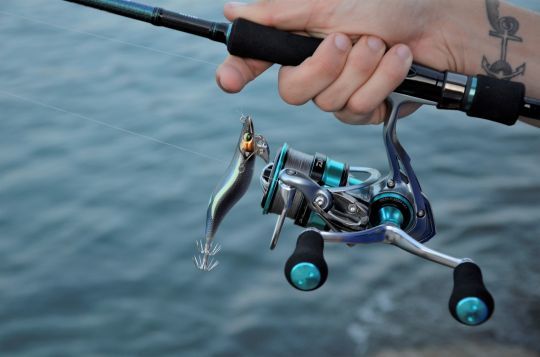
Master animation techniques
Two animation styles dominate:
- Cuttlefish respond to the slow, regular animations. The Bichi Bachi, from Japan, alternates wide pulls followed by pauses, imitating the escape of a shrimp. Bichi Bachi animation is a formidable attack stimulant.
- Gentle drifting animation works best for large, immobile cuttlefish: just waddle slightly without sudden movements.
For vertical fishing, a simple set-up with a 20 to 60 g pear sinker, depending on depth, is still very effective.
Managing touch and shoeing
A cuttlefish bites with subtlety: the touch is often expressed by a slight heaviness. You need to hook gently, then retrieve smoothly to prevent the cuttlefish from unhooking. We recommend using a landing net, as their ink jets can be surprising.
A few practical tips
- Don't shine the light directly into the water at night to avoid frightening the cuttlefish.
- Release young trees to preserve the resource.
- In murky water, use cage jigs or noisemakers to attract reluctant cuttlefish.

 /
/ 